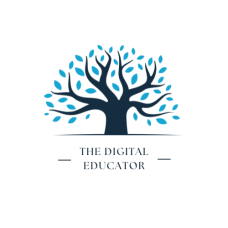PROFESSIONAL AND RESEARCH INTERESTS
I speak regularly at events and support teaching and research in a range of areas, I'm particularly interested in hooking up with colleagues and students e following topics:
Integration of Pedagogy and Technology
For example the importance of combining traditional teaching with modern technology to improve student engagement and learning outcomes. She highlights how digital tools can help personalize learning, foster collaboration, and develop critical thinking skills, making education more relevant and adaptable to today’s needs.
Academic Development Strategies
For example strategies for boosting academic success, focusing on continuous professional development for educators and creating supportive learning environments. She emphasizes the importance of refining curriculum design, assessment practices, and student support services to improve overall academic achievement and help students thrive
Innovative Teaching Practices
For example advocating for teaching methods that go beyond traditional approaches, encouraging active learning and critical thinking. She suggests using project-based learning, flipped classrooms, and gamification to engage students more deeply, fostering creativity, problem-solving, and real-world applications that prepare students for an ever-evolving world.
Re-imagining Future Learning
For examples working with programme teams to envision a future where learning is more flexible, personalised, and accessible to all. She sees emerging technologies like AI and virtual reality transforming education, offering tailored experiences that meet individual needs. This vision emphasizes lifelong learning and the opportunity for students to learn in diverse, evolving environments.
Jan
2025
Reimagining Academic Identity in the Era of Digital Education
very draft
For academics, embracing digital education isn’t just about learning new tools—it’s about rethinking their professional identity in a rapidly changing world. This transformation can feel daunting, especially when many academics are already stretched thin, balancing teaching, research, administrative duties, and personal commitments.
The Evolving Role of Academics
Traditionally, academics have been subject-matter experts, imparting knowledge through lectures, seminars, and research. But in the digital age, this role has expanded to include being a content curator, a digital facilitator, and sometimes even a tech troubleshooter. This shift can be exciting, but it’s also a source of tension.
Many academics feel their identity is tied to their expertise and teaching style, which can make adopting digital tools seem like a departure from what they value most. Adding to this complexity is the sheer pace of technological change. Keeping up with the latest platforms, pedagogical strategies, and digital trends often feels overwhelming, especially when time is limited.
The Challenge of Time Poverty
One of the most significant barriers to adopting digital education practices is time—or the lack of it. Academics are constantly juggling responsibilities, from designing courses and conducting research to attending endless meetings and mentoring students.
Diana Laurillard highlights this issue in her Conversational Framework, noting that professional development for academics must be practical and targeted. Training programs need to acknowledge the realities of academic life and offer solutions that fit into already packed schedules. This could include on-demand training modules, peer mentoring, or microlearning sessions that allow academics to upskill incrementally without feeling overwhelmed.
Identity in Transition
Embracing digital education often means stepping out of comfort zones. For many academics, this involves a degree of vulnerability—trying new tools and approaches in front of students, sometimes without feeling fully confident. This can challenge their sense of competence and professional identity.
Gilly Salmon’s Five-Stage Model emphasizes the importance of scaffolding both students and educators in digital environments. For academics, this means creating safe spaces to experiment and learn. Institutions can foster this by celebrating efforts to innovate, even when they don’t immediately succeed, and by building supportive communities where academics can share experiences and insights.
Supporting Academics Through the Transition
How can we make this transition more manageable? First, institutions need to recognize that adopting digital education isn’t just about skill acquisition—it’s about identity transformation. Providing opportunities for academics to reflect on how digital tools can enhance, rather than undermine, their teaching philosophy is critical.
Second, institutions must address the systemic issue of time poverty. This could involve allocating specific time for professional development, reducing administrative burdens, or integrating digital tools that simplify rather than complicate workflows. AI has potential here—automating routine tasks like grading or data analysis can free up time for academics to focus on teaching and research.
Balancing Innovation and Identity
The key to successful digital education adoption lies in balance. Academics need to feel that digital tools are enhancing their work, not detracting from their expertise or overburdening them. This requires a shift in perspective: seeing digital education as an opportunity to expand their teaching repertoire and connect with students in new ways, rather than as a threat to their identity.
Carmen Miles’ research and the work of Bates, Salmon, and Laurillard remind us that change is hard, especially when it touches on something as personal as professional identity. But by acknowledging the challenges of time poverty and the complexities of academic identity, we can create pathways that support educators in embracing digital education—not as an obligation, but as an opportunity.
How do you see academic identity evolving in the digital age? Let’s continue this critical conversation.




Testimonals

Mr XXXX
xxx
x

Miss YYYY
Lorem ipsum dolor sit amet, consectetur adipiscing elit. Nulla euismod condimentum felis vitae efficitur. Se

Mr XXXXX
Lorem ipsum dolor sit amet, consectetur adipiscing elit. Nulla euismod condimentum felis vitae efficitur. Sed vel dictum quam, at blandit leo.
Dr Carmen Miles
Link to doctorate - what about other things as a long list of not really articles
E-mail: the-digital-educator.co,uk
JISC Mail: The-Digital-Educator
We need your consent to load the translations
We use a third-party service to translate the website content that may collect data about your activity. Please review the details in the privacy policy and accept the service to view the translations.

